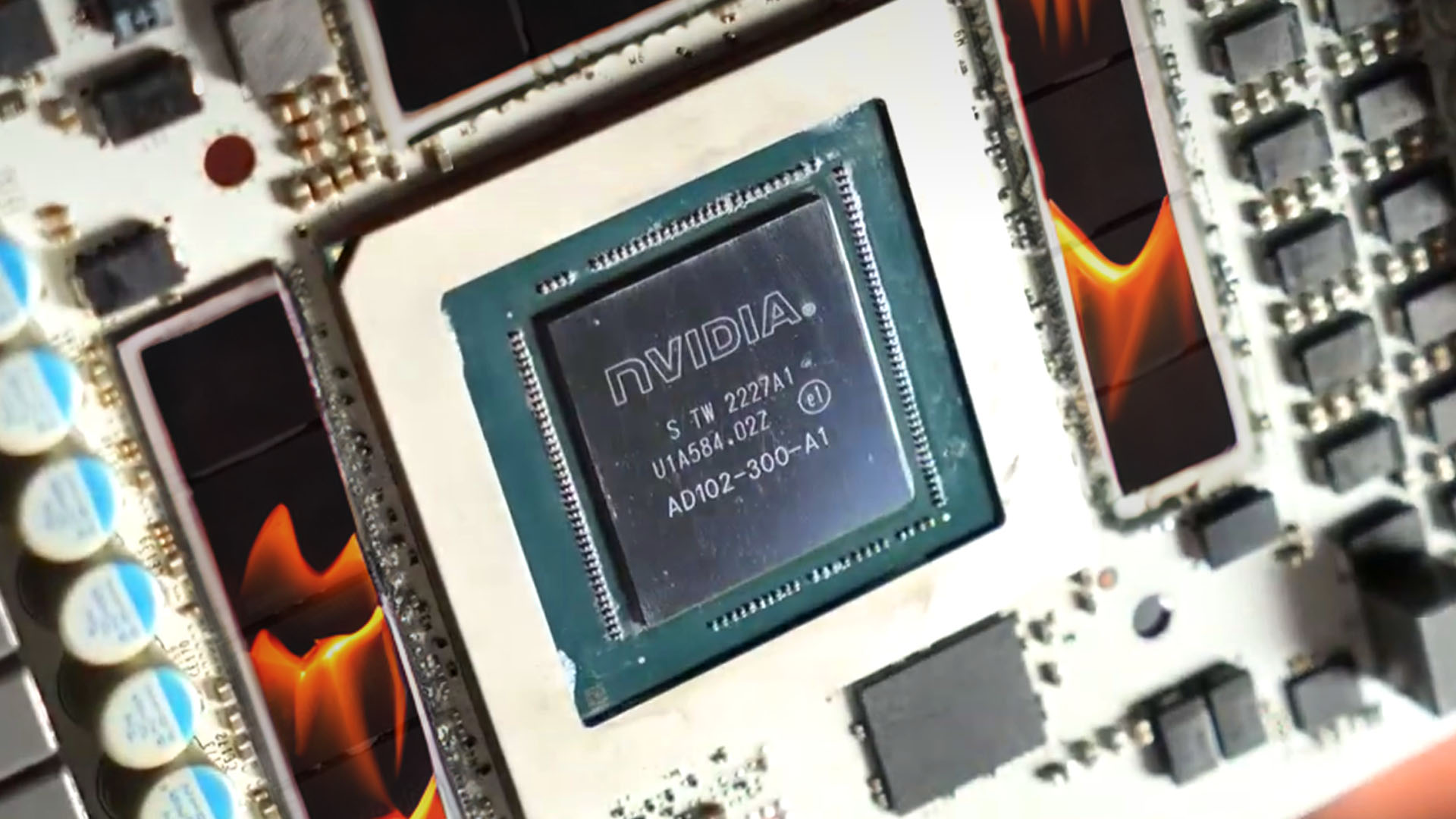There’s supposedly at least one Nvidia GeForce RTX 4090 Super on this planet, according to one Brazilian modding team that has managed to engineer the closest thing we’ll likely ever get to what would’ve been the fastest possible GPU of its generation.
The Nvidia RTX 4090 mod takes what has been the single fastest and best graphics card available for nearly two years now and swaps the standard card’s 21Gbps GDDR6X VRAM for 23.5Gbps VRAM modules – ironically taken from an older RTX 2080 Ti card. Not content, it then overclocks that memory to 25.8Gbps, overclocks the GPU itself, changes BIOS settings, ups voltages, and more.

The result is a card that progressively outperforms the stock RTX 4090 as each level of the mod is applied. With just the memory modules swapped, the card gets a 13% speed boost recorded in the Unigine Superposition benchmark. With the GPU clock then boosted from 2520MHz to 3,000MHz, the card steps up to a 16% performance increase.
The situation gets a little muddy when the team starts using LOD bias tweaks to start increasing the maximum benchmark score. This is where changing the value of the LOD bias in the Nvidia driver settings can be used to ensure certain benchmarks perform at their fastest. The problem being that the team could have used this ‘mod’ on the original card as well. Regardless, the end result is a final Unigine Superposition score of 17,454, which is 40% higher than the stock card’s score of 12,479.
It’s an impressive result that certainly shows that the RTX 4090 has plenty of headroom for more performance and is, if anything, starved for memory bandwidth. That’s no doubt at least part of the reason why the upcoming RTX 5090 is expected to use the very latest GDDR7 tech with a clock speed of 28Gbps.
However, along with the overly long (1hr+) video that waffles on about what they’re doing and the more than slightly iffy benchmarking methodology, what’s particularly got our goat about this mod is calling it an RTX 4090 Super. Traditionally, the Super variants of Nvidia graphics cards have included an increase in CUDA core counts – generally due to extra parts of the GPU being enabled – not just an increase in memory speed, even if that memory bump requires some impressive chip swapping and other modification.
Specifically, in the case of the RTX 4090, it uses Nvidia’s AD102 GPU but not all of the GPU is actually used. Only 14,592 of its total 18,432 CUDA cores are enabled, with others disabled. More often than not this use of not full GPUs is due to minor manufacturing defects affecting these areas of the GPU, but these defects don’t always mean the areas are completely unusable. As such, traditionally, mods to enable these disabled cores have been the heart of creating homemade “Super” card variants.
Whatever we make of the self-proclaimed naming of this modded card, that raw 16% performance increase is certainly impressive considering how powerful a graphics card the RTX 4090 is already.
While you mull over the possibility of resoldering and modifying a $2,000 graphics card, why not read up on what we think is in store when Nvidia’s next flagship card arrives in our RTX 5090 guide, which includes our latest estimates on its specs and release date.


